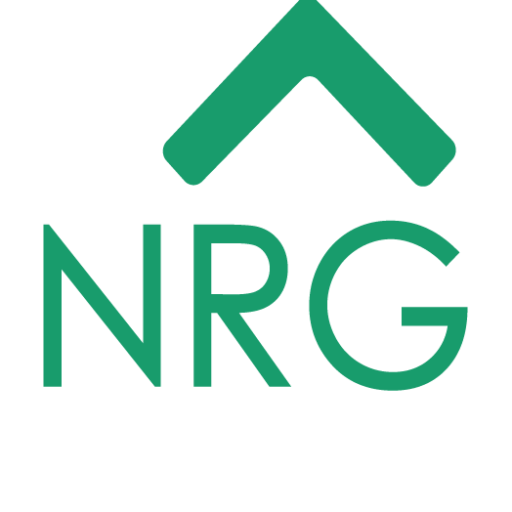It seems Australians' love affair with renovating continues to blossom. We forked out more than $28 billion on refurbishments last financial year, with that figure set to jump further over the next three, according to the Housing Industry Association.
But when it comes to remodelling, money spent does not necessarily translate to money made. Unfortunately, many renovators get caught up with lifestyle choices and lose sight of the need to add value.
Whether you plan to live in, rent out or sell a property, you need to consider it an investment, which means avoiding over-capitalising.
The key is to do your homework on local property values, understand your finance and capability limits and stick to them. Sometimes the latter can be easier said than done, so follow our tips to help avoid turning your property into a money pit.
Consider being an owner-builder
The label is a bit of a misnomer as it implies you will be the one with hammer in hand throughout the job. In reality an owner-builder is essentially a project manager. So the first question you should ask before taking on the task is whether you have time, energy and organisation skills.
If the answer to any of these is �no� then steer clear and hire a licensed builder to take on the project from start to finish. But if you feel you are up to the challenge, there can be significant savings in being an owner-builder, mainly because you choose the tradespeople and materials and have complete control over the entire project.
You can, of course, still work on the project yourself, adding to your savings. Even if you�re not an expert, you might offer to labour for your chosen bricklayer or plasterer, saving time and money.
The key to being a successful owner-builder is having time to manage the project properly. You will need time to find the right tradies and materials at the right price, co-ordinate who is on site and when, and answer any questions along the way, all of which can be incredibly taxing.
You also need to ensure you have approval from your council and State building authority and relevant insurances in place. A visit to your council is your best starting point for any renovation as they will advise on approval and licensing requirements.
DIY vs expert tradies
You know we are a nation of would-be DIYers when renovation-based reality TV out-rates most other programs.
While it�s tempting to take to the tools to save a few bucks, there are lots of things that can go wrong, which is probably why the TV shows rate so well.
Unless you are extremely skilled and have plenty of time, renovating is an area where only qualified experts should dare to tread. Sure, there are some tasks novices can tackle with care � pulling up flooring materials, stripping old paintwork, dismantling cabinets and painting � but most trades require experience, expertise and, above all, safety.
In 2011, a National Injury Surveillance Unit reported more than 25,000 hospital visits due to DIY-related mishaps. At Sydney Hospital�s hand unit alone, they claim to see at least one injury from a power tool every week.
Apart from the risk to life and limb, serious injuries can drain your funds, especially if you need to take extended time off work and have no income protection insurance. You may well find what you aimed to save in the first place is soon lost on household bills, sinking you into unforeseen debt.
Designing with your head not your heart
One of the main reasons we renovate is to improve our lifestyle, which is where many remodels go awry. It might make sense to add an ensuite, which is very likely to add value, but do you need the European bidet and Carrara marble vanity?
The answer lies in the demography of your suburb � who lives there now and who is likely to be living there in the future.
These are the factors that influence property prices and ultimately determine how much you should spend on your renovation.
Do your homework on recent sales of similar homes in your area, taking into account the number of bedrooms and bathrooms, which are the key influencers of price.
You should also consider water or city views, which tend to push property prices up. You will find property types in your suburb have a price ceiling. Your aim is to ensure your renovation doesn�t push the cost of your property through that ceiling, or else you have over-capitalised.
You also need to remember that property cost does not equal property value, which is determined by how much someone is prepared to pay.
Consider how long you plan to stay
This is a key consideration because time can have a big impact on property prices. If you plan on staying in your renovated home for more than five years you may be able to spend closer to your local property price ceiling than if you were looking for a quick turn-around.
That�s because capital gain over those years could eclipse your renovation costs. However, you will also be paying interest on your home loan over that time and when combined with renovating expenses, you may not be as far in front as you had hoped.
If you have bought a fixer-upper and are looking for a fast turnaround, you will need to be quite clever and restrained with your project.
Focus on elements that will add immediate value (see information below) and avoid unnecessary frills, such as expensive curtains, which may only end up getting replaced by new owners.









































![🌟🚗 𝕯𝖗𝖊𝖆𝖒 𝕮𝖆𝖗 𝕬𝖜𝖆𝖎𝖙𝖘! 🌟
Accelerate Your Journey: Discover Car Loan Options
Secure the perfect ride with rates and terms customized to your needs. We've got you covered, whether you're eyeing something sleek or rugged!
Experience a seamless journey to your dream ride with our expert guidance. Say goodbye to the hassle of shopping around for lenders – we'll take care of everything while you focus on enjoying the road ahead in style.
Begin your journey to owning your dream car today!
🚀 Drop us a message or give us a call, and let's get you behind the wheel of your dreams!
Click [ https://nrgfinancialservices.com.au/contact-us ]
𝐍𝐑𝐆 𝗙𝐢𝐧𝐚𝐧𝐜𝐢𝐚𝐥 𝐒𝐞𝐫𝐯𝐢𝐜𝐞𝐬
☎️ 𝟏𝟑𝟎𝟎 𝟖𝟓𝟗 𝟖𝟏𝟓
📧 𝐚𝐝𝐦𝐢𝐧@𝐧𝐫𝐠𝐬𝐞𝐫𝐯𝐢𝐜𝐞𝐬.𝐧𝐞𝐭.𝐚𝐮
🌎 𝒘𝒘𝒘.𝒏𝒓𝒈𝒇𝒊𝒏𝒂𝒏𝒄𝒊𝒂𝒍𝒔𝒆𝒓𝒗𝒊𝒄𝒆𝒔.𝒄𝒐𝒎.𝒂𝒖
#nrgfinancialservices #CarLoan #DreamCar #EasyRide](https://scontent-syd2-1.xx.fbcdn.net/v/t39.30808-6/435671457_1174679683513934_8116544923291992479_n.jpg?stp=dst-jpg_p720x720&_nc_cat=106&ccb=1-7&_nc_sid=5f2048&_nc_ohc=kogGs0gIJH8Q7kNvgESNgSP&_nc_ht=scontent-syd2-1.xx&edm=AKIiGfEEAAAA&oh=00_AYDNcUjxUMLwl9KW9_voLFqlIK-3o6mASLZqmKPTf7Uwsg&oe=664F1685)


















